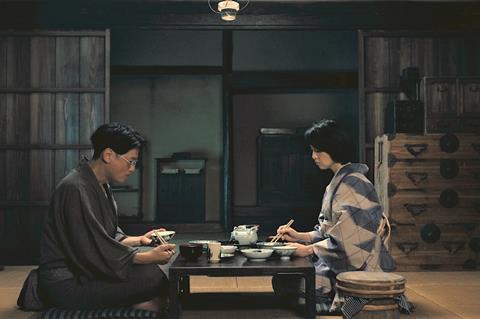
The 28th Busan International Film Festival (BIFF, October 4-13) has revealed the titles selected for its New Currents and Jiseok strands, the festival’s competitive sections for Asian films.
Scroll down for full list
New Currents is for films by directors making their first or second works of fiction and comprises 10 titles from Japan, China, South Korea, Malaysia, Thailand, India and Bangladesh.
They include September 1923, which marks the fiction feature debut of Japanese director Tatsuya Mori and centres on the Great Kantō earthquake of 1923. Mori is known as a documentary filmmaker, tackling subjects that shed light on societal issues such as i-Documentary Of The Journalist, which debuted at Tokyo in 2019.
Also from Japan is After the Fever by Akira Yamamoto, which explores the intricacies of intense emotional states experienced during profound love.
From China, Borrowed Time by Choy Ji follows a protagonist wandering through the streets of Hong Kong, blending past, present, reality, and fantasy. The film was developed through the Hong Kong-Asia Film Forum (HAF) system.
Two debut works by Bangladeshi directors include The Wrestler by Iqbal H. Chowdhury, about an elderly man from a fishing village who challenges a wrestling champion to combat, and The Stranger by Biplob Sarkar, a coming-of-age story in which a boy grapples with questions about his gender.
Two Korean films include Heritage by Lee Jong-su, following a military alternative social worker and the social worker who supervises him, and That Summer’s Lie by Sohn Hyun-lok, centred on a high school girl who reflects on the past summer spent with her boyfriend.
Indian director Rajesh S. Jala, who attended Busan in 2008 with his feature documentary Children of the Pyre, returns with his debut feature The Spark.
From Thailand, Solids By The Seashore marks the directorial debut of Patiparn Boontarig, previously an assistant director on Phuttiphong Aroonpheng’s Manta Ray, which received the Orizzonti award for best film at Venice in 2018. The film revolves around the intimate relationship between a young woman from a local conservative Muslim family and a rebellious female artist from the city.
Oasis of Now is the feature debut of Malaysian filmmaker Chia Chee Sum, an alumnus of the Asian Film Academy, and follows a woman and a small girl who meet occasionally on a stairwell, where they secretly take refuge and play games.
Jiseok returns
BIFF also announced the eight features selected for Jiseok, a strand that was launched last year, aimed at more established Asian directors.
The include The Moon from Japan’s Yuya Ishii, set inside a sanatorium that provides care for both disabled and elderly people. The film has generated anticipation due to its cast of distinguished Japanese actors such as Miyazawa Rie and Odagiri Joe.
Also from Japan, Ichiko by Akihiro Toda weaves a sorrowful narrative of a woman compelled to conceal her identity. It is led by Hana Sugisaki, who won best newcomer and best supporting actress at the Japanese Academy Awards in 2017 for her performance in Her Love Boils Bathwater.
Two South Asian films set to receive their world premieres at BIFF include Paradise by esteemed Sri Lankan filmmaker Prasanna Vithanage and Bangladeshi film Something Like an Autobiography, co-directed by Mostofa Sarwar Farooki and actress Nusrat Imrose Tisha, who also portray the central couple in the film.
From Central Asia, Bride Kidnapping by Kirghiz director Mirlan Abdykalykov has been selected. Abdykalykov received the FIPRESCI Award at BIFF in 2019 for Running to the Sky.
From Southeast Asia, a trio of films include 24 Hours With Gaspar by Yosep Anggi Noen, a prominent figure in the realm of Indonesian Independent cinema; Doi Boy by Nontawat Numbenchapol, which portrays the underbelly of Chiang Mai; and Moro, a tragic drama by renowned Filipino filmmaker Brillante Mendoza
Two films from South Korea include Blesser by Lee Sangcheol, about a man who reflects on raising a child with developmental disabilities, and At The End Of The Film by Ahn Sunkyoung, who won Busan’s New Currents Award in 2013 with Pascha. Ahn’s latest portrays a filmmaker navigating the demanding intricacies of the filmmaking process.
The full line-up of the festival is set to be announced on September 5.
New Currents
After The Fever (Japan)
Dir. Akira Yamamoto
Borrowed Time (China)
Dir. Choy Ji
Heritage (S Kor)
Dir. Lee Jong-su
Oasis Of Now (Malay-Sing-Fr)
Dir. Chia Chee Sum
September 1923 (Japan)
Dir. Tatsuya Mori
Solids By The Seashore (Thai)
Dir. Patiparn Boontarig
That Summer′s Lie (S Kor)
Dir. Sohn Hyun-lok
The Spark (India)
Dir. Rajesh S. Jala
The Stranger (Bang)
Dir. Biplob Sarkar
The Wrestler (Bang-Can)
Dir. Iqbal H. Chowdhury
Jiseok
24 Hours With Gaspar (Indo)
Dir. Yosep Anggi Noen
At The End Of The Film (S Kor)
Dir. Ahn Sunkyoung
Blesser (S Kor)
Dir. Lee Sangcheol
Bride Kidnapping (Kyrgyzstan)
Dir. Mirlan Abdykalykov
Doi Boy (Thai-Cam)
Dir. Nontawat Numbenchapol
Ichiko (Japan)
Dir. Akihiro Toda
Moro (Phil)
Dir. Brillante Mendoza
Paradise (Sri Lanka-India)
Dir. Prasanna Vithanage
Something Like An Autobiography (Bang)
Dir. Mostofa Sarwar Farooki
The Moon (Japan)
Dir. Yuya Ishii

























No comments yet